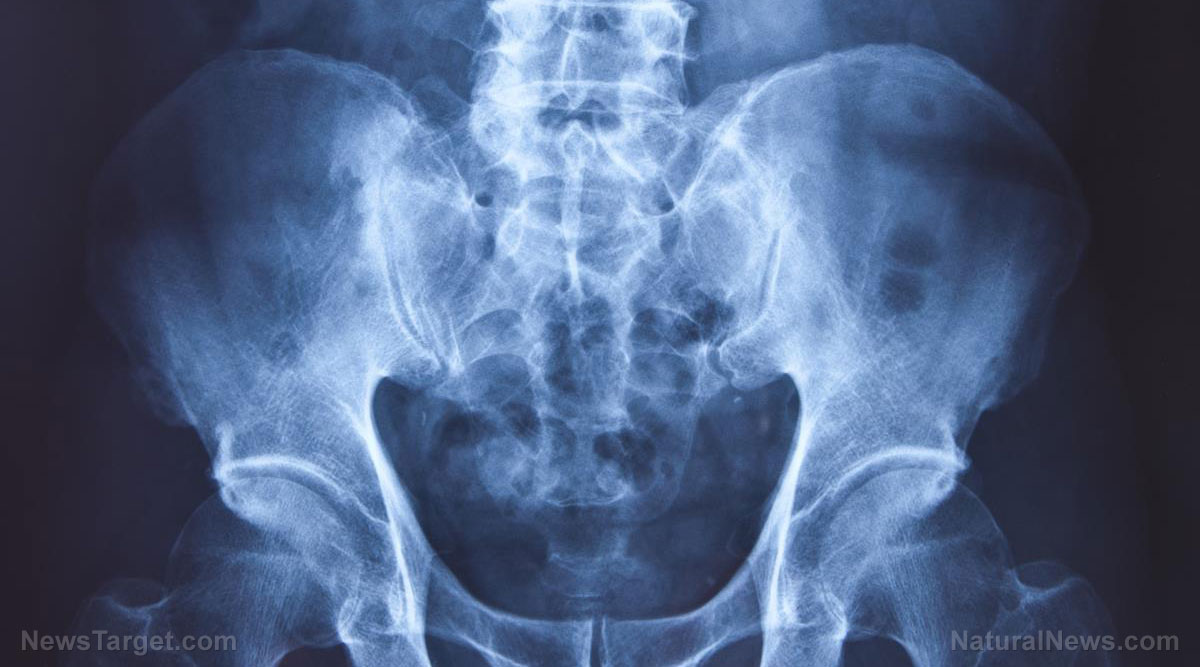Research determines that following the Mediterranean diet helps reduce liver fat and minimizes obesity risk
01/15/2020 / By Michael Alexander

Those looking to lower their hepatic fat deposits may be better off trying a low-carbohydrate Mediterranean diet over a low-fat one, according to researchers.
In a study published in the Journal of Hepatology, researchers from the Ben-Gurion University of the Negev in Israel, together with teams from the U.S. and Germany, found that the Mediterranean diet had a greater effect on reducing fat around the liver, heart and pancreas compared to low-fat diets with similar calorie counts.
For the study, the team randomly assigned 278 obese participants into two groups. One group was given a low-carbohydrate Mediterranean Diet, while the other was assigned a low-fat diet. Both groups were instructed to follow their diets for 18 months. They then conducted full-body magnetic resonance imaging (MRI) scans of the subjects. This mapped their fat deposits before, during and after the 18-month trial period so that they could analyze the effects of the assigned diets on their body fat distribution.
While both dietary groups had a reduction in hepatic fat, those who were assigned the low-carbohydrate Mediterranean diet recorded a significantly greater decrease in their hepatic fat deposits. They also noted a decrease in associated cardiovascular disease risk factors such as metabolic syndrome, Type-2 diabetes and coronary heart disease. (Related: The Mediterranean Diet Reduces Mortality From All Causes.)
“In this 18-month intervention trial, Mediterranean/low-carbohydrate diet induced a greater decrease in hepatic fat content than [a] low-fat diet, and the beneficial health effects were beyond the favorable effects of visceral fat loss,” the researchers concluded.
Sponsored: NEW Biostructured Silver First Aid Gel created by the Health Ranger combines three types of silver (ionic silver, colloidal silver, biostructured silver) with seven potent botanicals (rosemary, oregano, cinnamon and more) to create a breakthrough first aid silver gel. Over 50 ppm silver, verified via ICP-MS lab analysis. Made from 100% Texas rain water and 70% solar power. Zero chemical preservatives, fragrances or emulsifiers. See full details here.
More about the Mediterranian diet
The Mediterranean diet is a diet plan drawn from the eating habits of the people who live along the Mediterranean Sea, such as Italy and Greece. It also incorporates habits and food types of nearby regions such as Crete, France, Turkey, Lebanon and Portugal.
Despite having no strict menu, the diet itself is typically characterized by generous amounts of fruits, vegetables, whole grains, legumes, eggs and fish, as well as healthy fats. The diet is also known for advocating the consumption of a glass of wine per day.
Among the foods primarily consumed on the diet are the following:
- Whole grains such as whole wheat, oats, rye, barley, bulgur, millet, rice and couscous. Grain products such as bread and pasta may be added, as long as these are whole-grain.
- Green, leafy vegetables such as kale, spinach, broccoli, arugula, Brussels sprouts, chicory, collard greens, cabbages, lettuce and mustard greens, as well as dandelion greens and nettle leaves.
- Root crops and other vegetables such as potatoes, sweet potatoes, carrots, radishes, turnips, beets, celeriac (celery root), rutabaga, mushrooms, cucumbers, pumpkin, okra and artichokes.
- Whole fresh fruits such as apples, apricots, dates, figs, grapes, oranges, lemons, clementines, peaches, pears, pomegranates and melons.
- Healthy fats such as avocados, avocado oil, olives and extra-virgin olive oil.
- Legumes, nuts and seeds such as fava beans, green beans, kidney beans, peas, lentils, chickpeas, almonds, hazelnuts, pistachios, walnuts, sesame seeds and sesame seed paste (tahini).
- Fatty fish such as wild-caught tuna, herring, sardines, salmon and sea bream. Shellfish and other seafood such as abalone, cockles, mussels, crabs, oysters, squid and octopus are also typical in the Mediterranean Diet. Care must be taken, however, to ensure that these are caught in clean waters with no reports of red tide or related algae blooms.
- Eggs are a common addition to the Mediterranean diet. Among the most commonly used are those of free-range chickens, ducks and quail.
- Meats are typically limited to lean cuts of grass-fed beef, pork, lamb, goat and mutton. Poultry usually comes in the form of free-range and organically fed chickens and ducks.
- Fermented dairy products are eaten as part of the traditional Mediterranean diet, albeit in low to moderate amounts. Among the regularly-consumed products are brie, chevre, feta, halloumi, manchego, ricotta, Parmigiano-Reggiano, pecorino and Greek yogurt.
As the diet primarily focuses on organic and natural food products, researchers have noted its rich nutrient content. According to researchers, the Mediterranean diet is rich in monounsaturated fats, omega-3 fatty acids, dietary fiber, carbohydrates, protein, and vitamins and minerals.
With numerous studies explaining the many health benefits afforded by the Mediterranean diet, what’s preventing you from giving it a try?
Visit Food.news to learn more about the Mediterranean diet and its benefits.
Sources include:
Tagged Under: anti-diabetes, anti-obesity, cardiovascular health, clean food, diet, fightobesity, functional food, heart health, Mediterranean diet, prevention
RECENT NEWS & ARTICLES
Natural.News is a fact-based public education website published by Natural News Features, LLC.
All content copyright © 2018 by Natural News Features, LLC.
Contact Us with Tips or Corrections
All trademarks, registered trademarks and servicemarks mentioned on this site are the property of their respective owners.



















